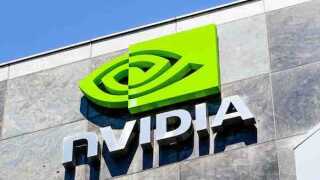The letter, addressed to the country's Parliament and dated 22 June, followed the publication of the Georgian National Communications Commission's (GNCC) 2020 annual report. The Georgian parliament did not conduct a hearing on the 2019 report, and Magticom has requested that hearings on both be "held in the nearest future".
Magticom wrote: "The Communications Commission seems extremely opposed to nearly all the undertakings operating in the sector. The companies operating in the sector have been embroiled in endless legal disputes with the Communications Commission. Incompetency, lies, unjustified sanctions (illegal decisions) and selective enforcement have become a standard/style of operation espoused by the Communications Commission.
"The sector led by the Communications Commission is being destroyed, as the Commission has no understanding of the sector’s importance, cybersecurity, or the principles of economics."
The letter said the 2020 annual report was "deliberately designed to mislead the public, spread false information and discredit the companies". The letter refuted three specific parts of the report, which covered the update to Georgia's Electronic Communications Law, MVNO regulation and mobile retail rates.
On the latter point, GNCC must now approve any retail price rises by Georgia's mobile operators, Magticom, Silknet and Veon Georgia (Beeline), a move Magticom said "harmfully affects the sector… Retail rates are not regulated by the regulatory authority in any of the EU Member-States".
Magticom continued: "The Commission often tends to misinterpret EU regulations and adjusts laws and regulations to its agenda that poses major problems to the sector. For instance, re-electing the chairman of the Commission to the office several times, adjusting the Competition Law to the Communications Commission for as long as Mr. Bekauri holds office, etc.
"A logical question arises: what is the next adverse measure that the current Communications Commission may come up with to further destroy the sector?"
It isn’t the first time Magticom has spoken out about the report. It issued earlier comments on 8 June and 14 June.
Kakha Bekauri
This week's open letter called on MPs to "rate the activity" of GNCC and state if its chair, Kakha Bekauri (pictured), "is deserving confidence or not".
Bekauri was elected as a member of GNCC in 2014 and chair in 2017. He was re-elected for a second term as chair in 2020.
Before GNCC he worked for the Public Broadcaster, TV Mze and Maestro. He also held the position of director of Channel 9 TV, which belonged to the family of former prime minister Bidzina Ivanishvili.
But he's a mathematician, and according to Georgia's laws on public broadcasting, GNCC members – and chairs – must hold a master's degree in economics, public administration, business administration, law, electronic communications or journalism.
Magticom wrote: "The Commission’s Annual Report for 2020 makes it abundantly obvious that rather than being 'the architect of the sector', as the Commission refers to itself, the Commission actually acts as a police authority hampering the development of the sector whose pressure and “bullying” adversely affect the development of the companies as well as of the entire industry.
"We, the companies, rather than devoting our thoughts and efforts aimed at developing the sector, have been reduced to accommodating unreasonable demands and whims of the Commission.”
Investor exodus
Magticom's letter comes during a turbulent time for Georgia's communications industry. The letter recalled how since 2017, major international investors, including Telia Sonera and Metromedia, have left the country.
The latest foreign investor to face issues is NEQSOL Holding and Magticom's letter made reference to this case.
In 2018, NEQSOL announced its plans for a "Digital Silk Way" to establish Azerbaijan and Georgia as hubs for internet and digital services across the Caucasus, Central Asia, the Middle East and China.
NEQSOL said it would develop terrestrial and submarine infrastructure connecting Europe and Asia through "acquisitions, partnerships and construction". This included a new fibre route linking Georgia, Azerbaijan and Kazakhstan/Turkmenistan that would provide an alternative to the current terrestrial routes through Russia, and submarine cables.
The route is designed to connect internet exchanges in Shanghai and Frankfurt, improve the information integration between China, Central Asia and the EU, and facilitate e-commerce in the Caucasus region.
As part of the strategy, in 2019, NEQSOL Holding acquired local service provider Caucasus Online, which owns a 1,200km submarine fibre optic cable, through which internet traffic connects from Europe to the Caucasus.
GNCC claimed that NEQSOL's purchase breached Articles 26 and 27 of the Communications Law by failing to seek approval on the changes to shareholdings and, as a result "violated the legislation of Georgia".
NEQSOL has always denied these claims.
Last year, the government and GNCC officially amended the country's' Electronic Communications Law with two new articles that could be used specifically to force NEQSOL to reverse the Caucasus Online acquisition.
Following a series of threats made against the firm, GNCC appointed a special manager to run Caucasus Online last year.
NEQSOL completed the acquisition in March of this year – despite the appointment of the special manager – and is currently challenging GNCC through the International Centre for Settlement of Investment Disputes (ICSID).
The same month, Europe's Venice Commission and the Council of Europe Directorate General of Human Rights and Rule of Law published a joint opinion on GNCC's new powers, concluding they were "not in line with European standards".
Capacity has reached out to GNCC for comment.









